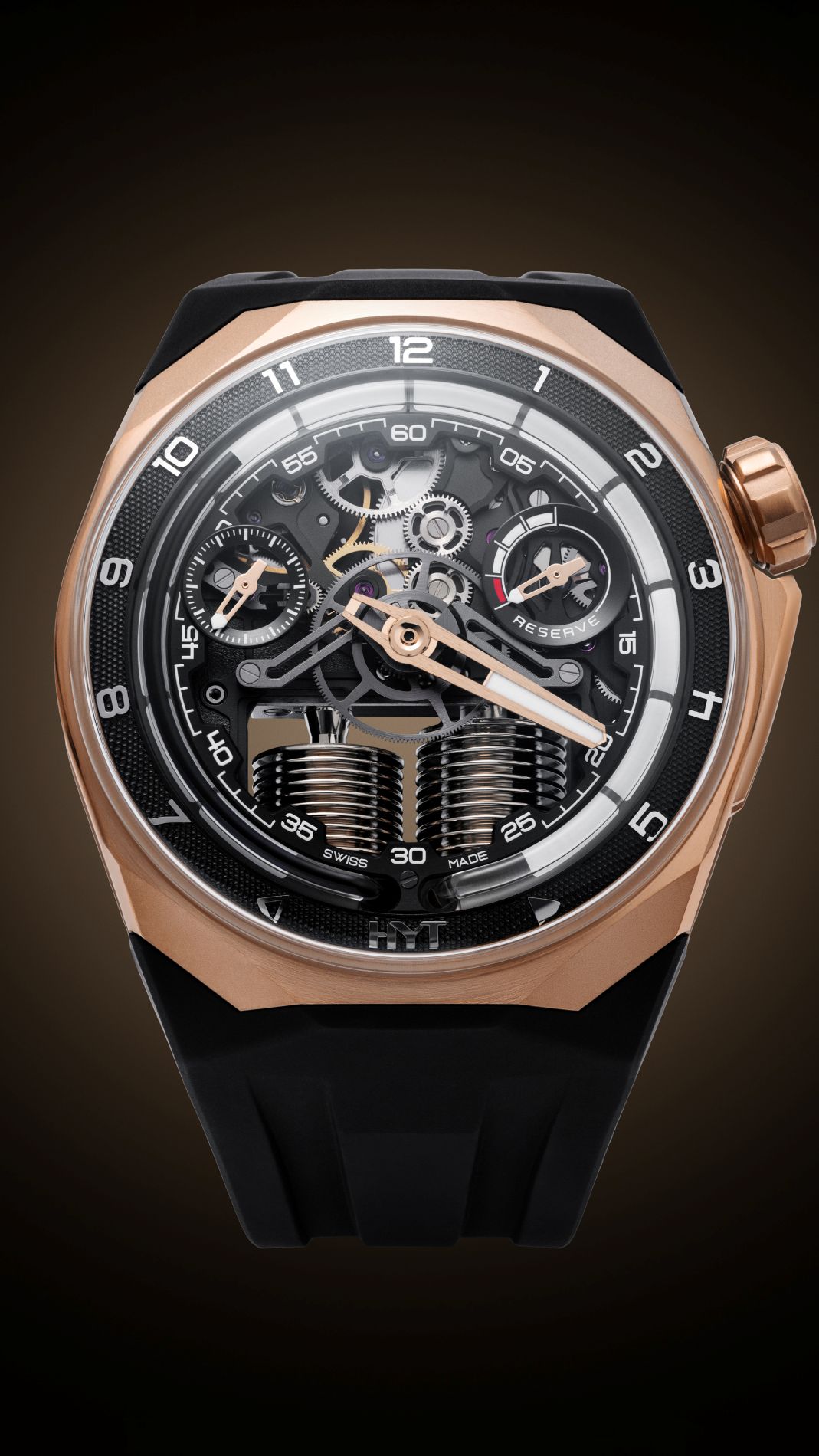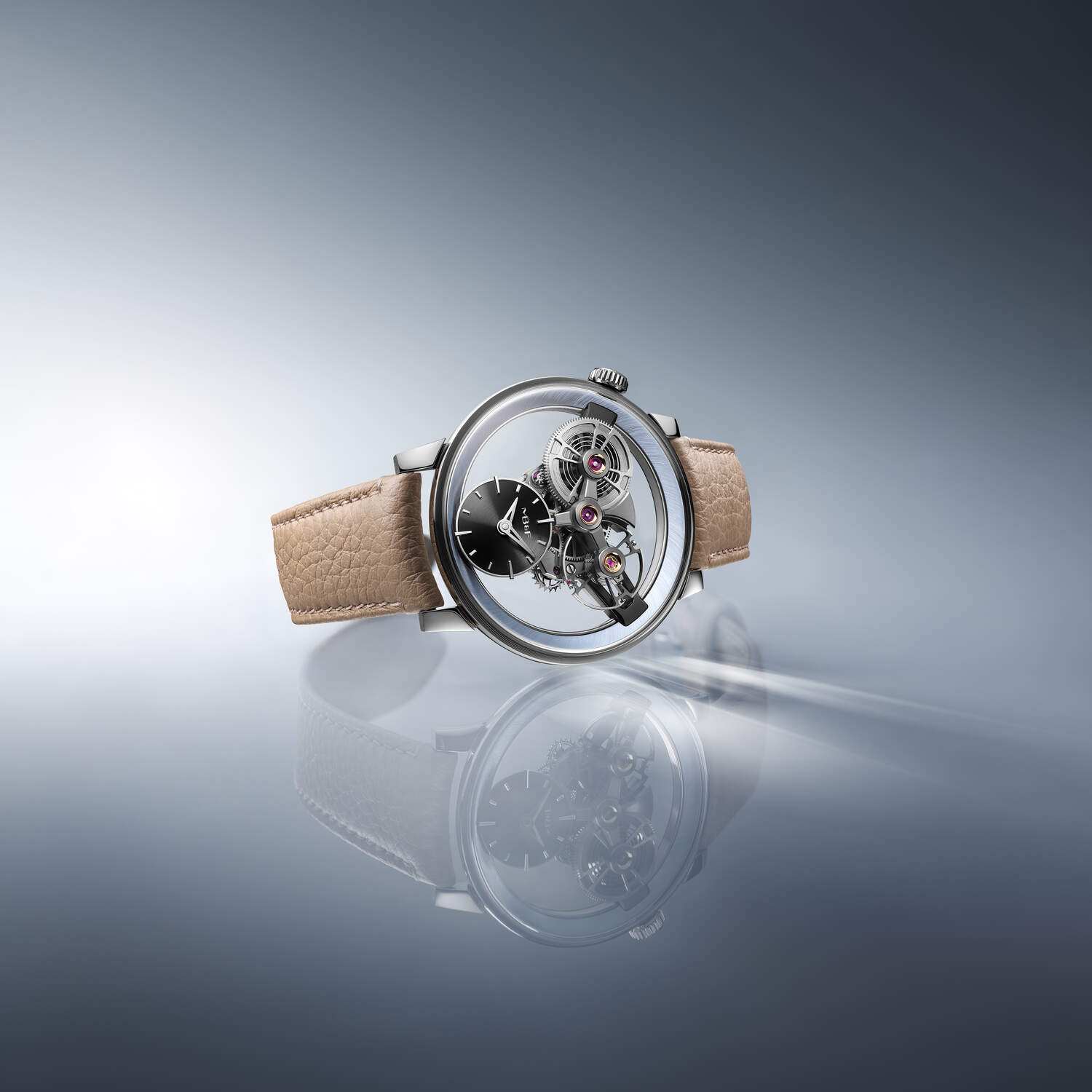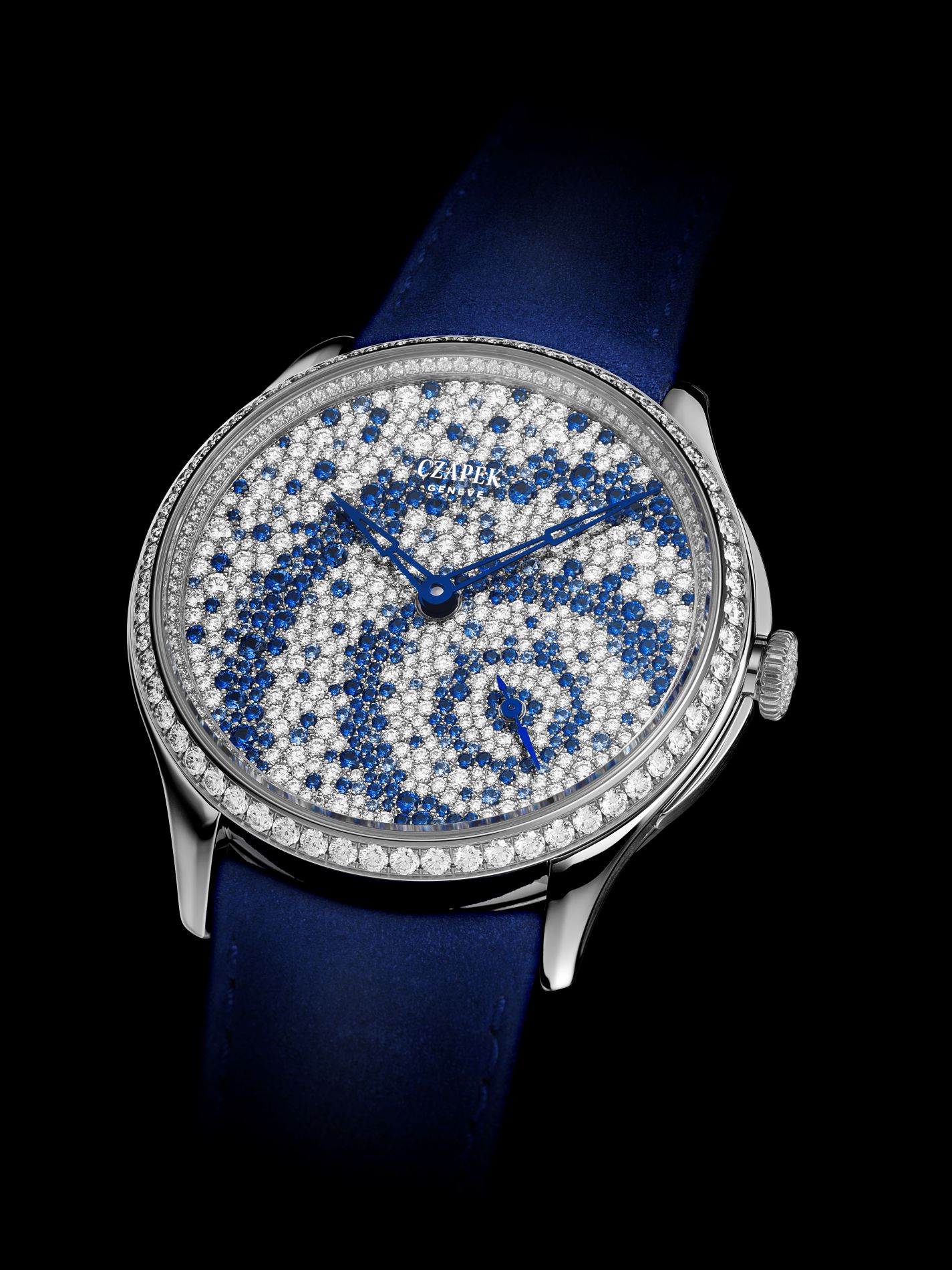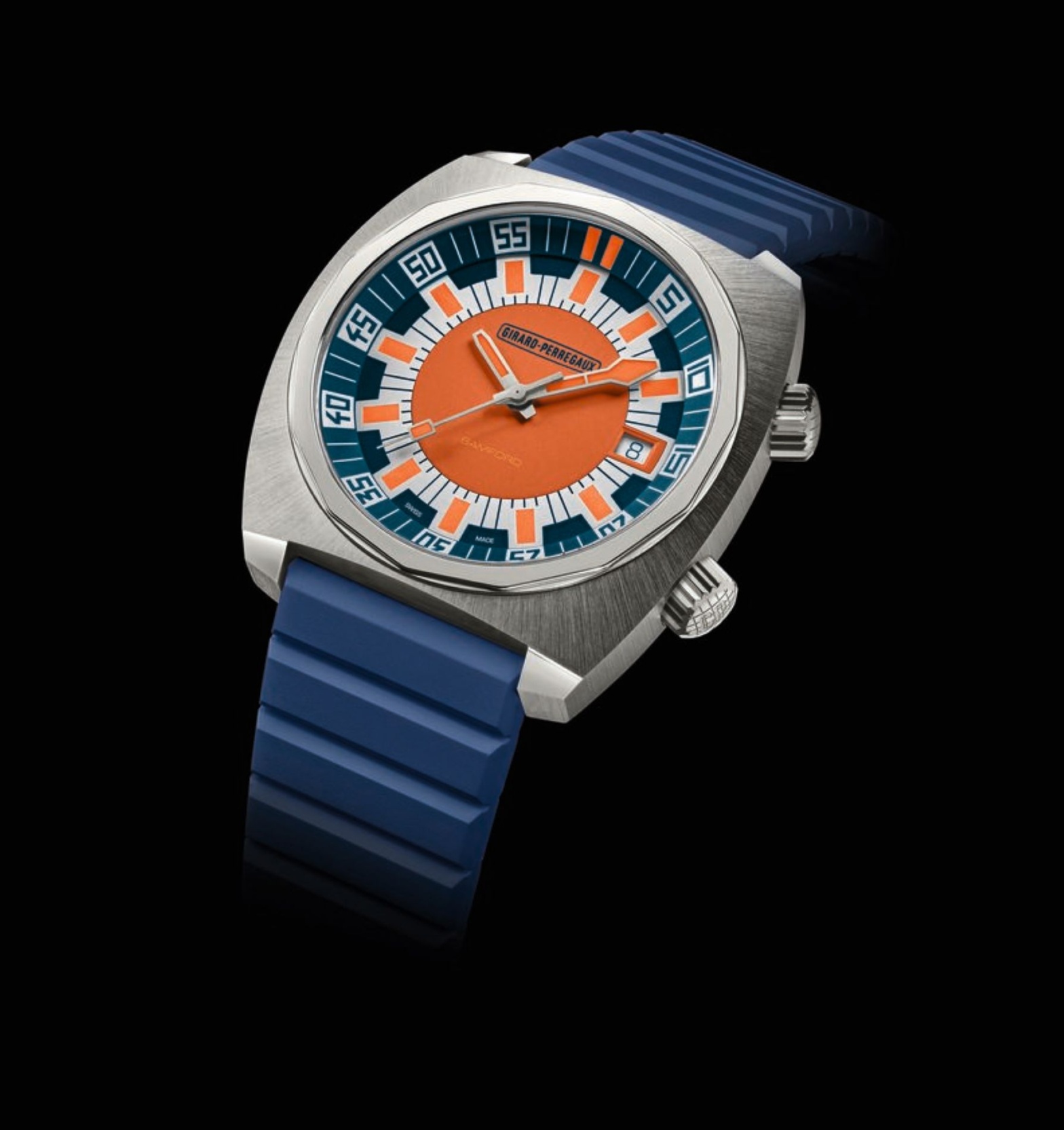TIMEKEEPER & AUTOMATON
Parmigiani Fleurier celebrates the Year of the Dragon with “Tempus Fugit”, a legendary icon of Chinese culture: The Dragon and the Pearl of Knowledge.
For Sinophone communities around the world, 2024 is the Year of the Wood Dragon, which starts on 10 February, the first day of the Chinese New Year. Strength and grandeur are the salient features of this symbolic animal figure. Maison Parmigiani is celebrating the occasion with a magnificent restoration of a masterpiece from its Métiers d’Art collection, Tempus Fugit. This exceptional creation is inspired by the legend of the Dragon and the Pearl of Knowledge, powerful symbols anchored deep in traditional Chinese culture.

HAUTE HORLOGERIE AND MECHANICAL ART
A fusion of Haute Horlogerie and art mechanics, at once an allegorical time-measuring instrument and an automaton, this complex, one-of-a-kind creation is the result of Parmigiani Fleurier’s vast experience in the restoration of antique clocks. Often, they combined timekeepers and automatons working in perfect synchronization: clocks with birds, for example, or moving figures representing a scene. Many of these pieces still regularly find their way to the Maison’s Restoration Workshop, one of the very few in the world capable of understanding and mastering their complexity.
The Dragon and the Pearl of Knowledge is a direct part of this lineage. It is inspired by Asian legends of the dragon swimming with a pearl, the carp jumping over the Dragon Gate, and the Dragon Emperor chasing the Pearl of Wisdom. Parmigiani Fleurier has expertly combined the special expressive shape of Tempus Fugit with traditional Chinese culture to present a true masterpiece of fine watchmaking.
THE LEGEND OF THE DRAGON AND THE PEARL OF WISDOM
The legend of the dragon swimming with a pearl is deeply rooted in Chinese culture. According to the Chinese philosopher Zhuangzi, “The most precious pearls are found only in the deepest waters, in the jaws of black dragons. In historical Chinese literature, dragon pearls are usually hidden in the mouths of dragons and only spat out at special times. Dragon pearls are rare and extremely valuable treasures.”
Swiss sinology expert Estelle Niklès van Osselt has a deep understanding of the origin and meaning of the Dragon and the Pearl of Knowledge: according to legend, only a carp that manages to make its way to the Dragon Gate after numerous attempts to go up the river receives the honour of being transformed into a dragon. This is the parable of the student who wanted to serve the emperor. The carp transforming into a dragon here symbolizes perseverance, while the pearl represents imperial wisdom. Forming an inseparable duo, “they allude to social ascension in the imperial hierarchy, to power, wisdom and protection against negative influences,” explains van Osselt.
The number nine is of central importance in Chinese culture. In addition to the eyes of a demon, the Imperial Dragon presented by Parmigiani Fleurier includes the body parts of nine animals – the head of a camel, the ears of a cow, the antlers of a deer, the neck of a snake, the paws of a tiger, the claws of an eagle, the belly of a mollusc, the scales of a carp, and the mane and beard of a lion. The very distinctive shape of the nose resembles a mushroom, a symbol of good luck.

THE ETERNAL MARCH OF TIME
The Tempus Fugit metaphor illustrates the concept of the eternal march of time. In this creation, which uses a mechanism developed by Parmigiani Fleurier, the dragon travels one revolution per hour, pursuing the dazzling orb at a constant speed, in pursuit of the glowing pearl. Just as the dragon is on the verge of seizing it, the pearl flies away, escaping the dragon’s clutches six times an hour. Every time the pearl moves, a gong sounds to alert the owner.
With the Dragon and the Pearl of Knowledge, Parmigiani Fleurier demonstrates to the world the breadth and richness of its knowledge of high-precision watchmaking, fine jewellery and automata. First sculpted in wax, the dragon’s body was then cast in three sections, before being expertly crafted from solid silver.
LEGENDARY GEMS
Covering the body with scales was the most complicated part of the operation. According to traditional custom, Chinese dragons have 117 scales, of which 81 (9×9) are male and 36 (9×4) are female. The Parmigiani Fleurier Imperial Dragon, however, has 585 scales, a number divisible by 9 and a carefully considered choice in the design of the dragon. The scales are made of natural jade, designed, cut, polished, and individually fixed, then riveted over the entire body, forming a complex assembly of precious elements.
The dragon is adorned with 150 green jade stones, complemented by exceptional white, yellow, orange and red jades. The claws and whiskers are solid white gold, the eyes are ruby, and the tongue is carnelian.
The Pearl of Knowledge is a solid white gold sphere surrounded by golden flames, which is embedded in a cameo of precious stones, including white diamonds and rubies, and orange and yellow sapphires. The base, which contains the mechanism, represents the river that the carp goes up. It was cut from a block of transparent rock crystal, through which the movement is visible. The gilded silver ring showing the traditional Chinese 12 hours (one Chinese hour is two hours) rotates every 24 hours. The fixed indices are made of jade.

KEY FIGURES: 1,000 COMPONENTS, 5,800 WORKING HOURS
A unique piece of watchmaking art, the Dragon and the Pearl of Knowledge has nearly 1,000 components. It required more than 5,800 hours of work and the participation of the most prestigious master craftsmen, under the direction of Michel Parmigiani.









